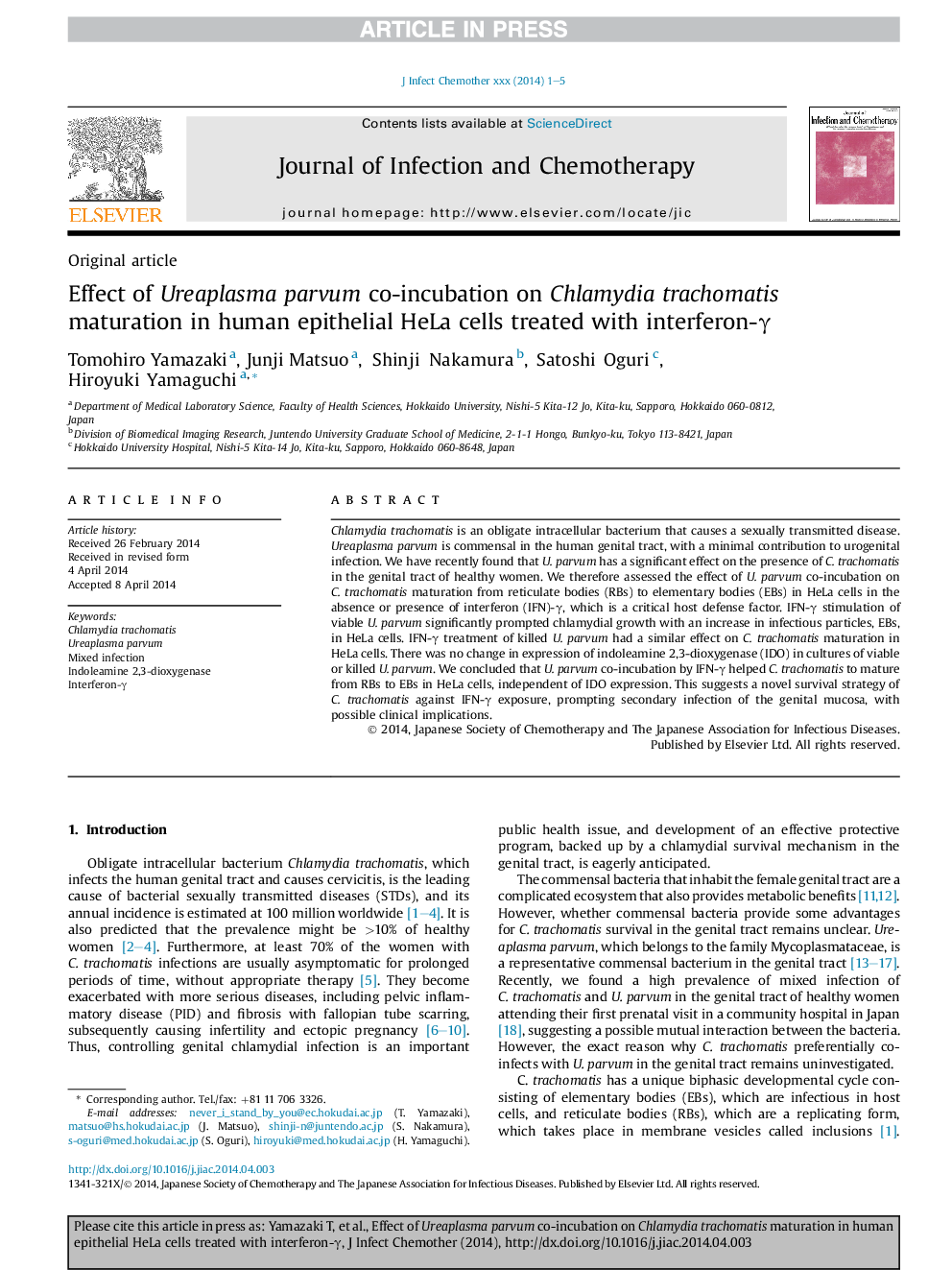| Article ID | Journal | Published Year | Pages | File Type |
|---|---|---|---|---|
| 6123655 | Journal of Infection and Chemotherapy | 2014 | 5 Pages |
Abstract
Chlamydia trachomatis is an obligate intracellular bacterium that causes a sexually transmitted disease. Ureaplasma parvum is commensal in the human genital tract, with a minimal contribution to urogenital infection. We have recently found that U. parvum has a significant effect on the presence of C. trachomatis in the genital tract of healthy women. We therefore assessed the effect of U. parvum co-incubation on C. trachomatis maturation from reticulate bodies (RBs) to elementary bodies (EBs) in HeLa cells in the absence or presence of interferon (IFN)-γ, which is a critical host defense factor. IFN-γ stimulation of viable U. parvum significantly prompted chlamydial growth with an increase in infectious particles, EBs, in HeLa cells. IFN-γ treatment of killed U. parvum had a similar effect on C. trachomatis maturation in HeLa cells. There was no change in expression of indoleamine 2,3-dioxygenase (IDO) in cultures of viable or killed U. parvum. We concluded that U. parvum co-incubation by IFN-γ helped C. trachomatis to mature from RBs to EBs in HeLa cells, independent of IDO expression. This suggests a novel survival strategy of C. trachomatis against IFN-γ exposure, prompting secondary infection of the genital mucosa, with possible clinical implications.
Keywords
Related Topics
Life Sciences
Immunology and Microbiology
Applied Microbiology and Biotechnology
Authors
Tomohiro Yamazaki, Junji Matsuo, Shinji Nakamura, Satoshi Oguri, Hiroyuki Yamaguchi,
